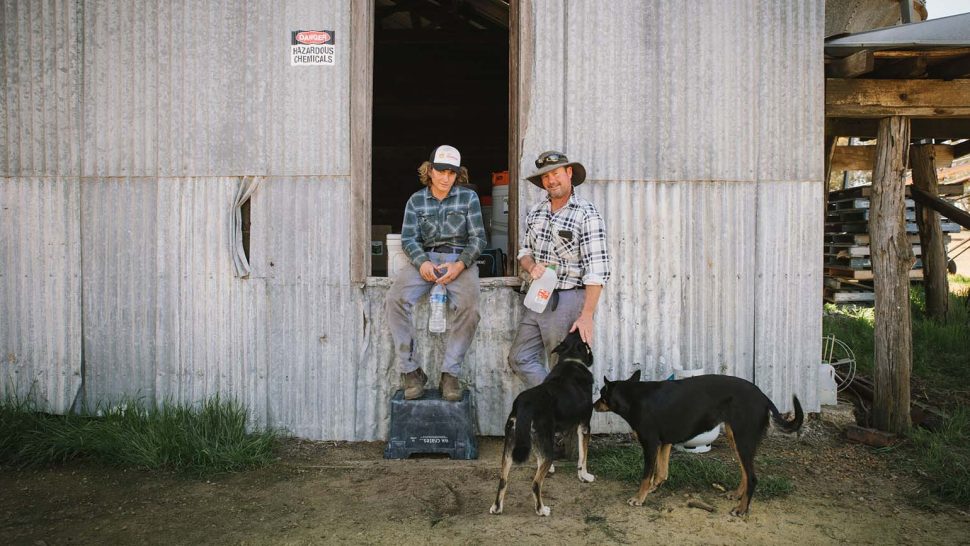North Central Victorian landholders are being invited to share their experiences as part of a national Soil CRC social benchmarking study led by Southern Cross University. The study seeks to uncover how farming and soil management practices change over time, to better guide farmer engagement and strategic planning in rural Australia.
Project leader Dr Hanabeth Luke from Southern Cross University believes that the most important element of healthy soils and a resilient farming system are the decisions made by farmers about their farm.
“We’re delivering a comprehensive mail-out survey to understand key drivers of landholder decision making,” Dr Luke said. “It builds on the Soil CRC’s previous social benchmarking research across six Australian farming regions, to help develop a longitudinal understanding of how farmer practices, aspirations and motivations are changing over time.”
The survey has been co-designed with local Soil CRC partners to ensure the questions are regionally relevant, enabling farming groups and other organisations to offer targeted support for landholders.
“We’re asking landholders about their assessment of issues, long-term plans, enterprise mix and where they access information about farming and land management, to identify factors shaping land management in each region.
“The information collected will also inform the activities of the Soil CRC, helping to increase stakeholder engagement, as well as relevance and adoption of research outputs,” Dr Luke said.
The North Central Catchment Management Authority (North Central CMA) has partnered with the Soil CRC project team to develop and deliver the second round of surveys to over 2000 landholders across the north central region of Victoria.
North Central CMA Executive Manager Strategy and Partnerships, Rohan Hogan, said listening to the community is a key part of creating partnerships and programs that deliver lasting change.
“The information from the survey will assist the North Central CMA in better understanding farmers’ drivers and will help in tailoring communication and engagement.”
Paper notices have now been sent to a random sample of local landholders inviting property managers, and those involved in decision making for the property, to get involved.
“We’re hugely grateful to all participating landholders, because completing this survey helps local supporting organisations such as the CMA to better target future research activities and communications for them and their farming communities,” Dr Luke said.
While North Central Victorian landholders will be the first to complete the follow-up surveys, landholders on South Australia’s Eyre Peninsula will be surveyed later this year, followed by the northern West Australian wheatbelt early in 2025.
Dr Luke said the Social Benchmarking Study has already surveyed thousands of Australian landholders and provides many insights about key levers for supporting change in agricultural systems.
“Some of these insights were quite unexpected; for example, the importance of involving a broader team in decision-making, whole-farm planning, and the timeframe of strategic planning. Also, belief in climate change has emerged as an important driver of the implementation of some resilience-building practices,” she said.
Excitingly, the Soil CRC recently announced additional funding to complete the second round of rural landholder surveys in Central West NSW, Tasmania, and the Victorian Wimmera region.
“This important research leads directly to increased farmer engagement and support, with the aim of improving soil management, farming productivity and ultimately, farming system resilience across Australia,” Dr Luke said.
Joining Southern Cross University and North Central CMA in the current phase of the study are Charles Sturt University, Agricultural Innovation and Research Eyre Peninsula (AIR EP), Eyre Peninsula Landscape Board and the West Midlands Group.
Take the survey
North Central Victorian rural landholders survey

